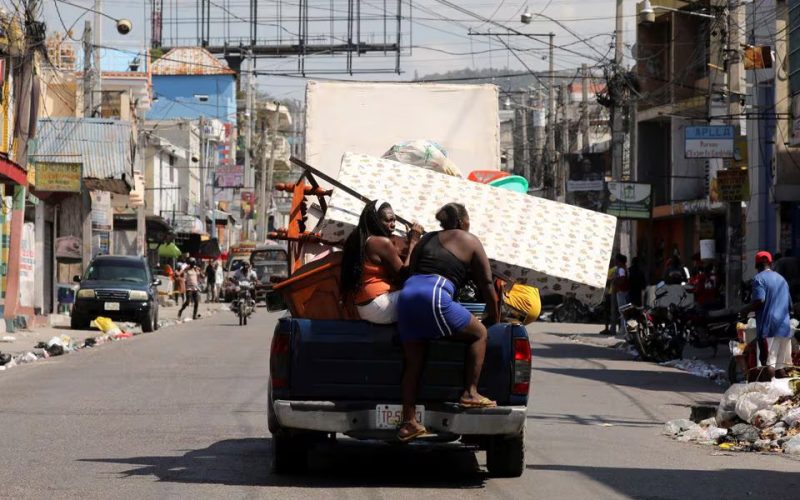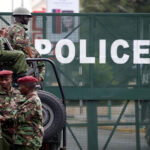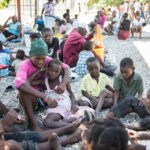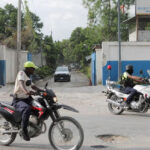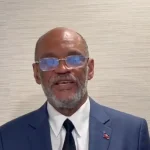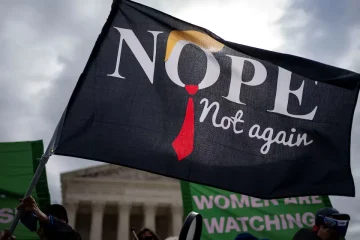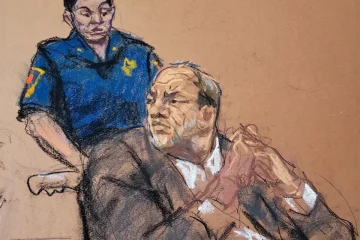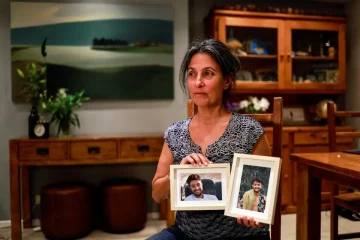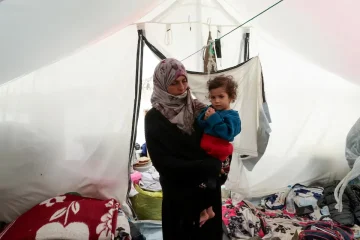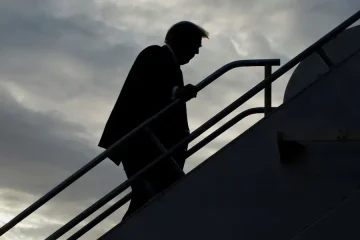HAITI’S neighbours began shoring up their defences and recalling embassy staff as a gang conflict in the Caribbean nation escalated and thousands fled fresh fighting.
On Sunday, Haiti’s de facto government issued a 72-hour state of emergency and imposed nightly curfews after armed men busted thousands from prison and a gang leader called for the ousting of Prime Minister Ariel Henry.
The Dominican Republic, which shares the island of Hispaniola with Haiti and last year deported tens of thousands of Haitians, said on Monday that its defence minister was touring the border to supervise progress on a border fence, while the president ruled out opening refugee camps for Haitians in the country.
The violence erupted while Henry was absent. Doubts had risen over Henry’s whereabouts after he travelled to Kenya to seal a deal for the African nation to lead an international force to help fight the increasingly powerful gangs.
Heavy gunfire was seen near Port Au Prince’s international airport during the day, airport authorities said.
The United States urged its citizens to leave Haiti “as soon as possible.” A spokesperson for the U.S. State Department said he believed Henry was returning to Haiti.
Brazil’s government called on the international community to implement the U.N.’s resolution to send a multinational force to Haiti. Brazil authorities noted in a statement that it had led a United Nations peace mission to Haiti from 2004 to 2017.
Neighboring Bahamas said it had called embassy staff back to New Providence, leaving just its charge d’affaires and two security attaches, while Mexico said its nationals should limit themselves to essential transit and stock up on water, fuel and non-perishables.
Gangs have warned residents around Port-au-Prince to keep children home, although the Haitian government has stipulated that schools will stay open.
The International Organization for Migration said that in just three days last week around 15,000 people are estimated to have fled gunfire in the capital, many of them from makeshift camps in schools, hospitals and squares to which they had already been displaced.
The United Nations estimated early this year that some 300,000 people had been forced to abandon their homes, fleeing indiscriminate killings, routine sexual violence, kidnappings and lootings as well-armed rival gangs fought over territory.
AID PAUSE
The International Rescue Committee said that aid groups it works with had been forced to pause their work, given the security situation.
The Washington-based Organization of American States pushed for a faster international response, in coordination with the U.N. “It is irresponsible that the necessary measures and actions continue to be delayed,” it said.
The U.N. last October ratified the plan to send in an international force, based on voluntary contributions from member states, to help Haitian police restore security.
However, a date for deployment has yet to be set. As of the end of February, the U.N. said five nations had formally pledged troops – The Bahamas, Bangladesh, Barbados, Benin and Chad – and less than $11 million was deposited in its fund.
The largest public pledges for personnel come from Benin, which offered 1,500 people, according to the U.N., and Kenya, which late last week sealed a deal with Henry to lead the mission with some 1,000 police officers.
Haiti’s national police has meanwhile shed staff, as poorly resourced officers face deadly clashes with gangs armed with assault weapons, believed to be largely trafficked from the United States.
Aid groups have urged the U.N.-backed force to prioritize securing routes to provide people with medical care and food.


